Neda Aria's Blog, page 18
October 22, 2021
Writer vs. Writer Interview: Victoria Avalor
Victoria Avalor is an American Author, a model, and a full-time Preschool Teacher in Central Pennsylvania. She's inspired by real-life events, fairy tales, and historical people in her writings. Let's get to know her better.

Hi Victoria. Thanks for joining us today.
Thank you so much for interviewing me for your website. I am very honored to be featured.Let's get started by asking about your published or unpublished books. Could you tell us more about it/them?
I have two ebooks published and I just finished the manuscript for my third ebook. Realm of Lore is a collection of 10 short stories and poems. The theme is sci-fi and fantasy. I have two personal favorites in that book; Ebony's Quest and Snow Fall. Ebony's Quest is a story about a fairy who must embark on a mission to save her realm. The entire cast of characters is Black. Snow Fall is a retelling of Snow White with a cast of Hispanic characters. It was important to me as a woman of color to write stories with strong female leads who were also women of color. An Unholy Union is a gothic vampire retelling of the 1836 short story, La Morte Amoureuse with many twists and turns. I tackle many themes including scandals within the Catholic Church. Which of your book characters is your most favorite? From which book and why?
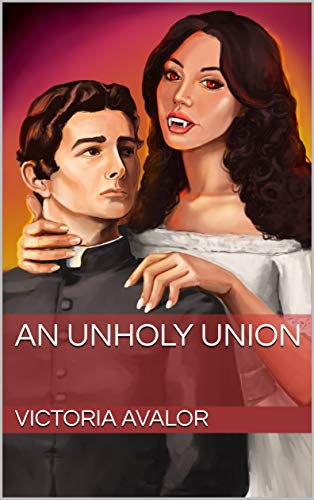
Ramona Molina from An Unholy Union is my favorite character. I don't want to spoil the story but I poured a lot of myself into her in regards to her past. When did you write your first book and how old were you?
I wrote Realm of Lore in 2017. I was in my 30's. Tell me about your publishing and marketing process.
I sought copyright with the United States Copyright Office. Once my work was protected, I self-published it on Amazon as an ebook. I promote my work on social media.

What do you like to do when you’re not writing?
I am an avid doll collector. Doll collecting is my favorite hobby! I have over 1,000 dolls. I love going to museums. I am passionate about Ancient Egyptian history and love to study it. I earned a certified Egyptology Diploma this past April. I love spending time with my family and my kitten.
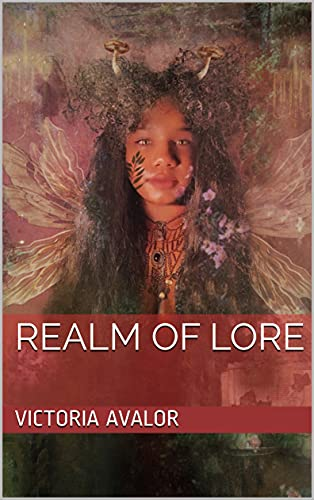
Interesting. As a child, what did you want to do when you grew up?
I always wanted to be an actress! That's cute. You could be. What was an early experience where you learned that language had power?
This may sound sad but I think that being a victim of racism and bullying showed me how powerful words can be. It hurts and can destroy your self-worth. However, words can also inspire you, make you feel strong, motivate you, and build you up. Language can be used for kindness and that is a powerful thing. You can take it to the next level and use words to create characters and worlds; powerful stories that can inspire.What was the best money you ever spent as a writer?
I bought a doll I really wanted for my collection with the first payment I received as an author!Which character in your writings most represents you?
Oh my goodness, many of my characters are a reflection of myself particularly in Realm of Lore. There is an unnamed character in my first short story, Clone. A character named Sarah in Angel in the Window. Gabriella in Snow Fall shares some similarities to myself. As I stated before, Ramona in An Unholy Union shares a lot of my past.
Thank you, Victoria for joining us today.
If you're interested to know more about Victoria please check the following links: Ebooks on Amazon: Amazon.com: Victoria Avalor: Books, Biography, Blog, Audiobooks, Kindle
Twitter and Instagram: @Victoria_Avalor
Facebook: http://www.facebook.com/VictoriaAvalor
October 15, 2021
Writer vs. Writer Interview: Gavin Gardiner
Let me introduce today's guest, Gavin Gardiner, with his own words. Gavin believes there is no greater terror than a truly unhinged human mind. For this reason, he specializes in the psychological and pushes the themes and subjects of his work into areas seldom explored in the genre. Gavin, for sure is one of the top picks for Halloween reads.

Thanks for joining us, Gavin. Let start by telling us a bit about yourself and your writing process.
Thanks for having me! My name’s Gavin Gardiner and I’m a horror author from Scotland. My work focuses on the kind of horrors we might find in our own lives, albeit taken to the extreme. Although I enjoy supernatural horror, I’m only interested in concocting the kind of monsters that actually exist in the real world. These, I feel, are the most terrifying.
My writing process totally goes against that romantic image of writers spewing the magic directly onto the page in a delirium of creativity; I’m a thorough and obsessive plotter, and every detail of every chapter must be planned out before the first word of the first draft is written. My mission is both to disturb and delight you, and I plot and plan in order to ensure your terror.
That's how a story should be. Do you have any books published?
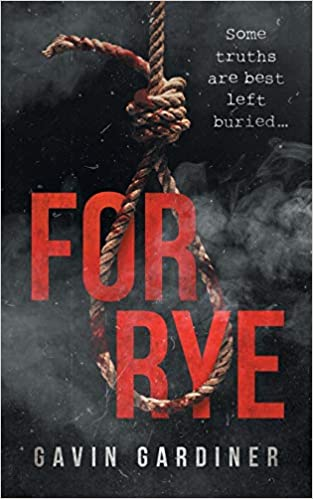
My debut novel, For Rye, was released back in April, along with various short stories prior to its release. I’ve been delighted with the book’s reception, having made it onto various Amazon bestseller lists throughout the year. People seem to have a place in their hearts for my nihilistic brand of horror!
The novel is essentially a character study of a woman on the brink of suicide, a troubled romance novelist who is drawn back to her childhood hometown upon the ritualistic murder of her mother. We join our protagonist is probably the worst mental state we could find anyone, and in this dire frame of mind, she must confront repressed memories of her family’s bleak and mournful past. A long-dormant evil soon emerges, and needless to say, things get very, very dark.
Which of your characters is your favorite? From which book and why?
It would have to be the aforementioned protagonist from For Rye, Renata Wakefield. Her arc is one of eventual empowerment but at a cost. Renata shows us what may become of even the most vulnerable, seemingly fragile souls if they surrender to the darkness. She’s spent her life subjugated, victimized, trodden into the dirt, and I think we’re all drawn to characters like Renata who find strength and come into their own. What makes her my favorite character is the heinous nature of this empowerment and the eventual dark transformation that comes to define her journey.
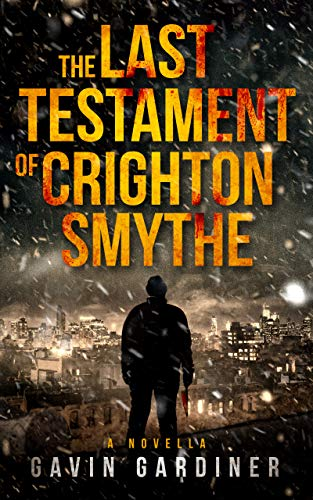
Which of your characters most represents you?
Well, they’re all pretty disturbing, so hopefully none! My upcoming novella, The Last Testament of Crighton Smythe, due for release this Halloween, features a disillusioned young man who must go to rather extreme, unusual measures to make ends meet. Thankfully I’ve never had to go to quite such horrifying lengths, but I did pour some of my teenage anxieties into Crighton. I remember that awkward age when you’re trying to figure out what kind of person you’re going to become, and the doubt and disillusionment that came with it. Although Crighton Smythe is in his early twenties when we join him, he still exhibits these anxieties about identity and one’s place in the world. I think he probably represents a particular phase we all go through at some point in our lives, and it’s my hope that readers will relate to him on some level, although not his terrible deeds. That would be worrying.
In transgressive fiction, we explore the character's psyche and some of us, at least I, put them in horrific conditions to see how they would react. It seems your stories fit well in the Transgressive genre as well. Can you tell us more about your writing style and genre?
There’s no question that my brand of horror is a transgressive one. During none of my projects have I had any interest in re-treading the same old tired tropes of the genre, and I’ve made the focus of my work nihilistic, hopeless nightmares from which readers can take very little in the way of moral worth or guidance.
As with the very best transgressive fiction, I try not to use mental illness as a ‘shortcut’ to depravity, but rather use the psychological instabilities and imbalances of my characters to garner insights into the darkest depths a human mind may descend. My horror concerns itself with the most torturous mental states a person can endure.
Another hallmark of transgressive fiction that I incorporate into my work is that of taboo subjects. I’m a huge believer in the function of fiction to both commentate and allow readers to experience catharsis by confronting their own dark pasts and awkward truths. I’m yet to shy away from any subject and plan on tackling many more in the future. In my work, you’ll find no ghosts or ghouls, only the absolute worst ordeals in which normal people like you and me may find themselves.
Great explanation. Can you tell us what is the most challenging thing about writing a book?
Writing my first novel very much felt like groping in the dark. It was my first serious writing project, and I had to do a lot of learning as I went along, identifying areas that needed improvement or where the extra study was required. Now that I’m working on my second novel, I’m finding my method has become much smoother, but I’m still a big believer that if the process isn’t challenging then you’re not working hard enough. As writers, we have to really push ourselves if we want our book to truly have a chance of moving people. Any time I begin to suspect that I’m not being challenged fully, I take a step back and try to figure out how to push myself harder.
Understandable. I wonder, how do you publish and market your books?
I’m signed to a small independent publisher, so much of the promotion and marketing is left up to me. I won’t pretend like I’d say no to one of the big publishing houses, but an advantage of working with smaller presses is the level of creative freedom you get. It’s been a joy overseeing every step of my writing projects, and I feel extremely lucky to have had the chance to fully realize my creative visions.
In terms of marketing, I decided early on that I was going to forgo the usual Amazon and Facebook ads, instead opting for creative approaches that might get the book noticed. One idea I had was to package the advance reader copies in the aged, blood-stained paper, tied with black twine and bundled up with a personalized handwritten note. This seemed to really capture the imagination of reviewers and their followers and added to the overall experience of the novel.
The lesson I learned was that we all have limited resources – both financially and in terms of time – and it’s up to us to figure out the most effective way to use these resources. My advice is to use your imagination and figure out some bold ways to stand out from the crowd. You’re an artist. Put that creative brain to work.
That's interesting. Could you give an advice for writers just starting out?
I usually tell writers to take some time to establish exactly what their goal is, but this advice can apply to any endeavor. You have a far greater chance of success if you narrow down your aims and define your destination as accurately as possible.
In my case, I decided early on that I wanted to write psychological horror that would explore the darkest, most depraved real-world situations. Narrowing down my mission statement in this way ended up taking some of the work out of my hands; it guided how I would promote my writing, where I would network, who my target audience was going to be, my plan for future works, and much more. I advise new writers to put in the effort to establish where they want to take their writing. It might take some experimenting to figure out your style or area of interest, but that’s all part of the process. Concrete, defined goals have a far greater chance of realization than fuzzy, amorphous pipedreams.
Above all: write.
Thank you so much Gavin for this amazing interview. Sure, we learned a lot.
If you're interested to get to know Gavin more please check the following links:
Linktree
,https://linktr.ee/GGardinerHorror
Website
,https://gavingardinerhorror.com/
,https://www.facebook.com/ggardinerhorror
,https://www.instagram.com/ggardinerhorror/
,https://twitter.com/GGardinerHorror
Goodreads
,https://www.goodreads.com/author/show/21191937.Gavin_Gardiner
Amazon
,https://www.amazon.co.uk/Gavin-Gardiner/e/B08WRPF8HJ/ref=dp_byline_cont_pop_book_1
October 8, 2021
A Brave New World: Trans Athlete and Olympics
In case you had been sleeping under a rock during the pandemic-stricken times of 2021, the Olympics took place in Tokyo, albeit with athletes performing to ghosts in the grandstands. While the empty stadiums made headlines around the world, a raindrop within the storm made splashes of its own. Enter Laurel Hubbard - the first transgender woman contestant to be allowed to compete in Olympic games. Yes, you read that correctly. Obviously, this raises all sorts of questions. Morally, scientifically, hell let's even throw in fancifully. However, this is no fictitious tale, unfortunately. In order to understand how this transpired, we need to start from the beginning.

The 43-year-old weightlifter was born a male and grappled with his identity for a large chunk of his life. The application and doings of his life pre-transition are just as significant as the details post-transition when he became she and had to meet certain criteria in order to compete at the highest level. Prior to the conversion, Laurel Hubbard was weightlifting and training as a man while enjoying all the heightened perks and gains that come with being one versus that of being a female. But before we delve into the scientific stuff, I regress.
 The Worm has Turned
The Worm has TurnedIn 2012, Laurel Hubbard made the transition to female after identifying with the gender for a number of years. What followed in the years ahead was the unbelievable decision of the International Olympic Committee (IOC) in 2015 to make a colossal change in its rulebook that permitted transgender women athletes to compete in weightlifting as a female so as long as their testosterone levels remained below a certain range, which Laurel adhered to the year she transitioned. The relevance of testosterone of course is that it's a hormone that increases muscle mass so while this may all seem like rainbows and lollipops in the name of fairness, think again.
The fact is this human being was working out as a biological male for the better part of three decades. To say this presents no advantages is akin to having your head buried in the sand or allowing the winds of denial to sweep you off your feet while you are brushing your teeth in front of the mirror. It would be like completing the first ten levels of Mario Bros. with star power as it finally wears off and you quip, ok, I'll play fairly now. Clearly, humans born as females don't have the luxury of building muscle mass the way males can, regardless of when the transition takes place unless you did it in the womb, but then you'd have superpowers at which point your gender would be the last thing on my mind. Besides, with Laurel's transformation occurring as late as 2012 as a 33 yr old, this only strengthens my argument considering there was more time to pump weights and grow pulsating pectorals.

There is also research that shows an increase in bone and muscle density for those individuals who have undertaken puberty as a male which again, can easily be the difference between winning the gold medal or zilch. The evidence is clear. And it is plentiful. Still, need more? You can check ,here and ,here. Oh, and ,here too. Sifting through the endless information in favour of why transgender women have an advantage over biological women, one could soon envision a preposterous reality in where women's sports have been destroyed. The new norm becomes set in stone and then what? Society starts entertaining the idea of allowing athletes to compete in categories based on gender identity alone? Fortunately, identifying as a toddler doesn't give you the right to order a hot dog from the kid's menu. Won't happen. Can't happen.
Where's my diversity?Shouting from the treetops, you may hear the woeful argument that by excluding transgender athletes, you are not for saluting range and instead omitting certain types of people, but the reality is the world can not cater for every living creature big or small. Don't get me wrong - if somebody wanted to identify as a chipmunk, I'm all for a chipmunk Olympics, but what I can not accept is a women's competition that is worth billions of dollars with people's livelihoods and dreams at stake, unfairly trodden upon because a transgender woman wants a piece of the pie.
"Anyone that has trained weightlifting at a high level knows this to be true in their bones: this particular situation is unfair to the sport and to the athletes. Life-changing opportunities are missed for some athletes - medals and Olympic qualifications - and we are powerless." said fellow weightlifter Anna Vanbellinghen upon hearing news of Laurel Hubbard gaining selection for the Olympics. "It's like a bad joke." While she doesn't make it sound so flattering, I couldn't agree more.
This perplexing decision by the IOC to grant approval for transgender to partake in the women's weightlifting competition is compounded even further when you realise that only one lifter per category from each nation was able to compete in Laurel's +87kg weightlifting event, thus shutting down the entire list of other aspiring weightlifters that hail from the not-so-small island nation of New Zealand. It begs the question - How could this have been allowed? For the record, I'm not blaming transgender people any more than the organisations that allowed them to bend the rules. The IOC and other sports governing bodies around the need to put an end to this absurd operation.
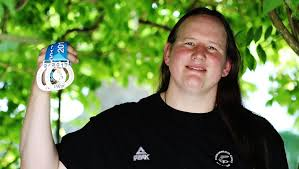 The Aftermath
The AftermathIn the end, our good friend Laurel Hubbard missed the podium in Tokyo which I guess serves a thin layer of justice, but of course, it's not the full picture. Where we go from here and in four years' time is the great unknown. If anything, it's inspired the next generation of transgenders to keep knocking on that door in the hope that if they knock loud enough, the owners may let them in, just like they did to Laurel. Indeed, the proverbial Pandora's box has been opened.
"I'm not here to change the world," said Laurel Hubbard in 2017. Well, perhaps not directly, Laurel. But you have. And you didn't have to win a medal to do it.
Writer vs. Writer Interview: Ira Rat
Today we will have a chat with Ira Rat, author of Participation Trophy, Pacifier, Juvenilia (poetry), and co-wrote A Beginner’s Guide to Extreme Horror with Jon Steffens. He has published a selection of his artwork as I’m sorry mom. Make music under many different projects. He's also the designer/owner of Filthy Loot Press, where I’ve edited the anthologies Teenage Grave, Isolation is Safety, Little Birds, and the zines F*cked Up Stories 1-3. Quite a lot, eh? Let's get to know Ira more.

Jack of all Trades, Ira, Thank you for joining us. First question. Give me an example of when first you thought outside of the box when it comes to writing.
I’ve always thought that the box was only as big as what you draw influence from. I try to have a rather large pool of consuming everything from the “classics” to the most experimental trash that I can get my hands on. I don’t think I’ve ever even found the edges of the box.

Why transgressive fiction? What about this genre attracts you?
It’s the whole “one person vs. society” thing and breaking taboos. American society is filled with these social morays that never made any sense to me. I write with different flavors of genre, but the themes of transgression and existentialism are typically the block everything else is built on.
What is your current book about? What did you edit out of it?
I’ve been working on a book called Just Another Goddamn Failure, though I might put it down to write some stories for a while. It’s loosely based around the diary of a would-be political assassin but doesn’t go down that path. I’m a few thousand words into it but will probably ditch most of that by the time I’m done, as a lot of it is just me thinking about the character’s past that won’t advance the plot.

What was your hardest scene to write and in which book?
The first scene that I wrote for Participation Trophy (now about halfway through the book). I had to edit 15 pages down to 5 when I moved it. It was full of syrupy language and didn’t fit the style of the rest of the book.
What’s the most difficult thing about writing characters from the opposite sex?
I don’t really find it difficult, but I never write overly masculine or overly feminine characters. In real life, everybody’s somewhere on the spectrum, but rarely at either extreme. Also, I rarely write about romantic love or sex.

What kind of research do you do, and how long do you spend researching before beginning a book?
I’m constantly researching. I read, watch movies/documentaries, listen to lyrics in songs, watch people. When the right combination of ideas gels together in my brain, it just comes out.
How many unpublished and half-finished books do you have?
I have the skeletons to half a dozen in my brain that are just missing that key element. Just Another Goddamn Failure and a book of art called 50MG Eyes. Are about the only things that I’ve been exploring without a clear goal in mind.

What’s the best way to market your books?
The only things I go out of my way to do are make sure the book has a cover that will draw your eye. Then be a decent person who isn’t just sitting there spamming people constantly about your new book.
Do you hide any secrets in your books that only a few people will find?
Everything I write is about something else entirely other than what’s on the page.
What do you owe the real people upon whom you base your characters?
Most characters are Frankenstein’s monster of bits and pieces of different people. I don’t know if I could just insert anybody from my life into a story. Even if something starts out as autofiction, the “me” rarely has anything but a superficial resemblance.

If you're interested to get to know Ira more you can check out the following links:
Main website: https://www.irarat.com/
Filthy Press: filthyloot.com
Amazon: https://www.amazon.com/Ira-Rat/e/B07WQH17TS/ref=dp_byline_cont_pop_ebooks_2
October 7, 2021
Female Transgressive Writers of all time (Part 10)

There are many more fantastic Transgressive writers who happened to be a woman as well but I have decided to stop this series right here with Amelia Opie, Elfriede Jelinek, Eleanor Catton, Laurell K. Hamilton, and Jennifer Weiner.
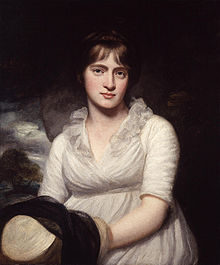 Amelia Opie
Amelia Opie(12 November 1769 – 2 December 1853)
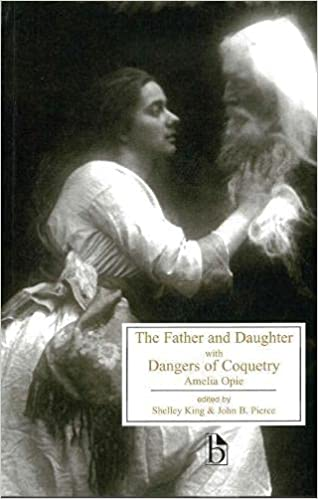
Amelia Opie was an English author who published numerous novels in the Romantic period up to 1828. Opie was also a leading abolitionist in Norwich, England. Hers was the first of 187,000 names presented to the British Parliament on a petition from women to stop slavery. (source)Opie spent her youth writing poetry and plays and organizing amateur theatricals. (source) Opie completed a novel in 1801 titled Father and Daughter showing genuine fancy and pathos,(source) the novel is about misled virtue and family reconciliation.
This book is about the story of Agnes Fitzhenry, whose seduction by the libertine Clifford causes her father to descend into madness. The theme is rooted in the social conditions of late 18th - 19th century Britain and I can say this novel is both an affecting narrative and a compelling social commentary. Opie’s writings normally address issues of female sexuality and the social construction of gender. For example in the first novel, Dangers of Coquetry, the story of a young woman who, while possessing many virtues, is given to coquetry.
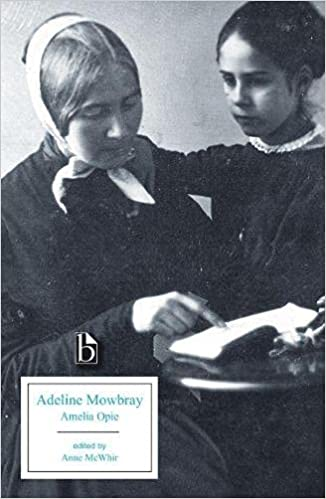
Encouraged by her husband to continue writing, she published Adeline Mowbray, an exploration of women's education, marriage, and the abolition of slavery. This novel in particular is noted for engaging the history of Opie's former friend Mary Wollstonecraft, whose relationship with the American Gilbert Imlay outside of marriage caused some scandal, as did her later marriage to the philosopher William Godwin. (source) It may be because of Godwin's notion against marriage as an institution by which women were owned as property (source). The novel also engages abolitionist sentiment, in the story of a mixed-race woman and her family, whom Adeline saves from poverty at some expense to herself.
Yes, Mary Ann, I freely grant,The charms of Henry's eyes I see;But while I gaze, I something want,I want those eyes — to gaze on me.- Amelia Opie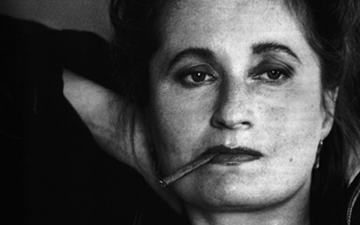 Elfriede Jelinek
Elfriede JelinekElfriede Jelinek is an Austrian playwright and novelist. She is one of the most celebrated authors writing in German today and was awarded the Nobel Prize in Literature in 2004 for her "musical flow of voices and counter-voices in novels and plays that, with extraordinary linguistic zeal, reveal the absurdity of society's clichés and their subjugating power".(source)The nature of Jelinek’s texts is often hard to define. "They shift between prose and poetry, incantation and hymn, they contain theatrical scenes and filmic sequences." (source) The primacy in her writing has however moved from novel-writing to drama.
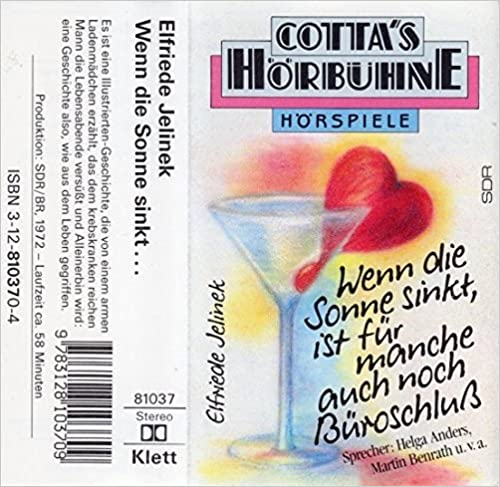
Her first radio play, wenn die sonne sinkt ist für manche schon büroschluss, was very favourably received in 1974. She has since written a large number of pieces for radio and the theatre, in which she successively abandoned traditional dialogues for a kind of polyphonic monologues (source) What she puts on stage in plays from recent years are fewer characters than “language interfaces confronting each other.
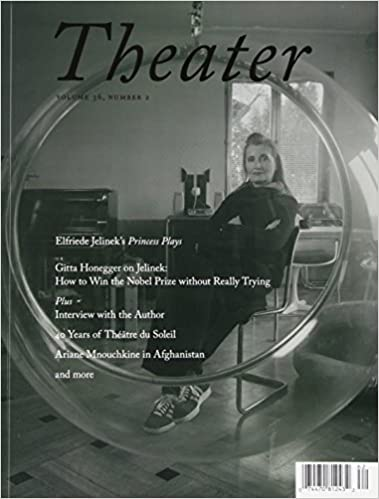
Jelinek’s most recent published works for drama, the so-called “princess dramas” (Der Tod und das Mädchen I–V, 2003), are variations on one of the writer’s basic themes, the inability of women to fully come to life in a world where they are painted over with stereotypical images. Jelinek was a member of Austria's Communist Party from 1974 to 1991. (source) Many foreign governments moved swiftly to ostracize Austria's administration, citing the Freedom Party's alleged nationalism and authoritarianism. The cabinet construed the sanctions against it as directed against Austria as such, and attempted to prod the nation into a national rallying (Nationaler Schulterschluss) behind the coalition parties. (source) This provoked temporary heating of the political climate severe enough for dissidents such as Jelinek to be accused of treason by coalition supporters. (source)
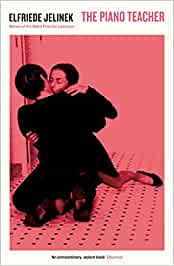
One of my favorite novels from her which turned into a movie as well is "The Piano Teacher" in which most of the story is pleasingly transgressive in which I kept asking myself what will Erika - the female character - do next? This interesting yet problematic relationship between her and Walter changes when Walter comes off as earnest and naive, but that must have all been for the show because he ends up being a brutal rapist by the film's end. What I love about this story is how the female character comes up as the assailant yet by the end she was just a victim that changed Walter by sharing her fantasies, just as a good lover should.
“Her body is one big refrigerator, where Art is well stored.”― Elfriede Jelinek, The Piano Teacher Eleanor Catton
Eleanor Catton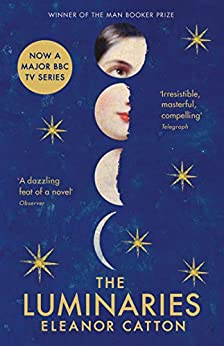
Eleanor Catton is a Canadian-born New Zealand novelist and screenwriter. Her second novel, The Luminaries, won the 2013 Man Booker Prize. Catton met Chicago-born poet Steven Toussaint at the Iowa Writers' Workshop, and Toussaint moved to New Zealand in 2011 to begin a Ph.D. in US avant-garde poetry at Victoria University of Wellington. (source) Catton describes Toussaint as the first reader of her drafts, and he prevailed in an argument over whether one character in The Luminaries should be killed off. (Ibid.)
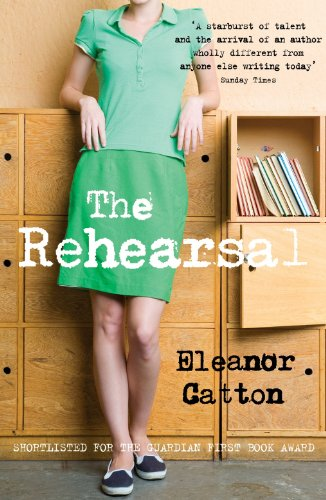
However, in regards to Transgressive fiction, The Rehearsal is my favorite. It was the debut novel by Catton and released by Victoria University Press in New Zealand in 2008. The Rehearsal was later bought by Granta Books in the UK and released there in July 2009. In 2016, the film adaptation was screened in the Contemporary World Cinema section at the Toronto International Film Festival. (source)This story is about a teacher's affair with his underage student. It is where a group of teenage girls into a new awareness of their own power and desire in the practice room where they rehearse with their saxophone teacher is the safe place where they can test out their abilities to attract and manipulate. Catton describes the theme of this novel as "themes of performance and performativity". (source) For me, this is a story of obsessive love and attraction.
“A woman fallen has no future; a man risen has no past.”― Eleanor Catton, The Luminaries Laurell K. Hamilton
Laurell K. Hamilton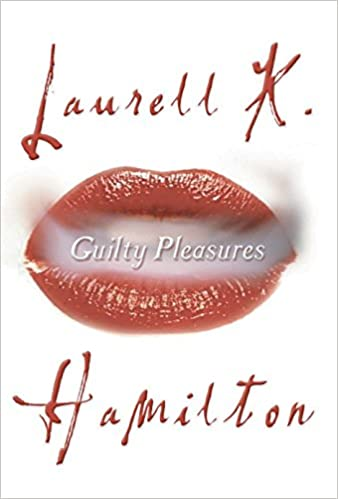
Laurell Kaye Hamilton is an American multi-genre writer best known as the author of two series of stories, Anita Blake: Vampire Hunter and Merry Gentry. Entertainment Weekly and USA Today have identified Hamilton as having a significant impact on urban fantasy. (source) In 2008, Time
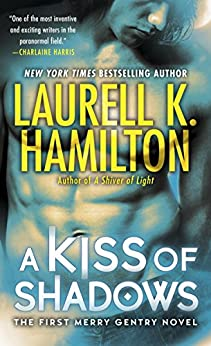
declared that the popularity of the genre "owes everything to Laurell K. Hamilton".(source) Her books normally include all manner of shape-shifters, erotic partners, and monster hunters, and a lot of vampires which is not my thing to read but had to include this fantastic author in the list.
“There are wounds that never show on the body that are deeper and more hurtful than anything that bleeds.”― Laurell K. Hamilton, Mistral's Kiss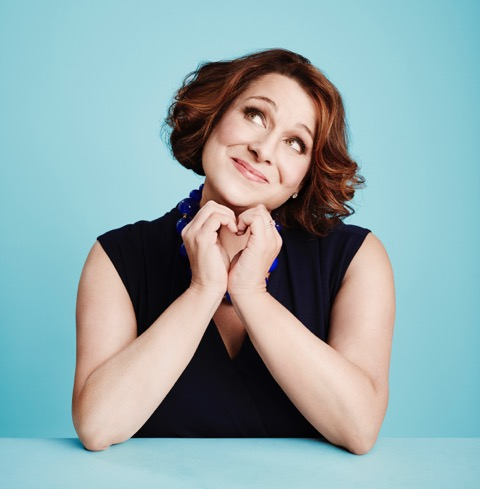 Jennifer Weiner
Jennifer Weiner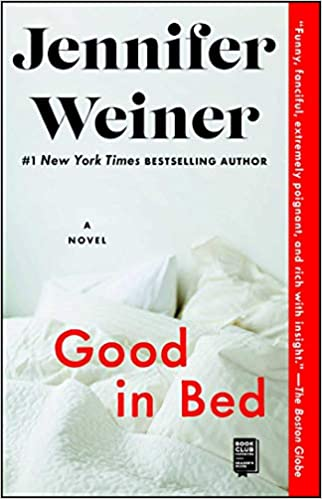
A #1 New York Times bestselling author, Jennifer Weiner’s books have spent over five years on the New York Times bestseller list with over 11 million copies in print in 36 countries. She's is an American writer, television producer, and journalist. Her debut novel, published in 2001, was Good in Bed. Her novel In Her Shoes was made into a movie starring Cameron Diaz, Toni Collette, and Shirley MacLaine. I love her because she has been a vocal critic of what she sees as the male bias in the publishing industry and the media, alleging that books by male authors are better received than those written by women, that is, reviewed more often and more highly praised by critics.
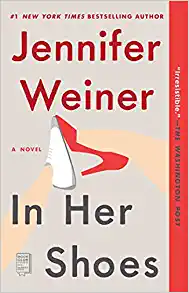
For me, what makes her a transgressive writer is not that she boldly explores sex in her stories but it's her own personality and the way she openly criticizes what's the so-called norm in literature when it comes to gender. In 2010, she told The Huffington Post, "I think it's a very old and deep-seated double standard that holds that when a man writes about family and feelings, it's literature with a capital L, but when a woman considers the same topics, it's romance or a beach book – in short, it's something unworthy of a serious critic's attention. ... I think it's irrefutable that when it comes to picking favorites – those lucky few writers who get the double reviews AND the fawning magazine profile AND the back-page essay space AND the op-ed ... the Times tends to pick white guys." (source)
Also, in an interview with The Daily Telegraph, she stated that "When a male writer simply writes adequately about family, his book gets reviewed seriously, because: 'Wow, a man has actually taken some interest in the emotional texture of daily life, whereas with a woman it’s liable to be labeled chick-lit. There is a long-standing gender imbalance in what goes into the canon, however, you want to define the canon." (source) As for the label "chick lit", Weiner has expressed ambivalence towards it, embracing the genre it stands for while criticizing its use as a pejorative term for commercial women's fiction. According to Guardian, Jennifer Weiner has launched a campaign against the wall-to-wall coverage Jonathan Franzen's new novel, Freedom, is receiving. Dubbing the pre-publication furor "Franzenfrenzy", Weiner put out a call to her 15,000 Twitter follows "for non-Franzen novels about love, identity, families" (Freedom deals with the breakdown of an American family) under the hashtag #franzenfreude. "Don't dislike him, per se. Disliked his response to being Oprah pick, over coverage in Times, elsewhere. There are other books," she wrote.
“He loved me. He loved me, but he doesn't love me anymore, and it's not the end of the world.”― Jennifer Weiner, Good in BedWell, here we are at the end of the Women Transgressive Writers series. Stay tuned for more on Transgressive fiction reviews, writing tips, and interviews.
September 30, 2021
Female Transgressive Writers of all time (Part 9)

Yet again, 5 fantastic female authors whose style or books (at least some of them) can be categorized under transgressive fiction. Let's learn more about Lois Duncan, Tanya Thompson, Tarryn Fisher, and Natalie Young, and Marion Stein.

Image source
Lois Duncan(April 28, 1934 – June 15, 2016)
Lois Duncan was an American writer, novelist, poet, and journalist best known for her young-adult novels, and has been credited by historians as a pioneering figure in the development of young-adult fiction, particularly in the genres of horror, thriller, and suspense. (source) Duncan began writing at a young age, publishing two early novels under the pen name Lois Kerry. Several of her novels, including Hotel for Dogs (1971), I Know What You Did Last Summer (1973), Summer of Fear (1976), and the controversial Killing Mr. Griffin (1978), have been adapted into films. Her book is listed in top transgressive fiction in Goodreads and I categorize some of them under this genre as well. Her books are scary yet mostly, as they're written for young adults, are not contaminated with sex and gore.
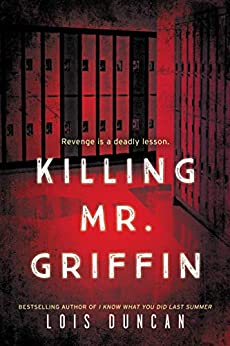
In this regard, Killing Mr. Griffin that was banned from some California schools in the 1980s and challenged in numerous others is why I categorize it under transgressive fiction. It has been banned and challenged for having themes of violence, murder, drinking, drugs, lying to authority, peer pressure, and smoking. Still, according to the American Library Association, Killing Mr. Griffin was the 25th on the most challenged book between 2000-2009.
“Sit down every day and DO IT. Writing is a self-taught craft; the more you work at it, the more skilled you become. And when you're not writing, READ.”― Lois Duncan
Image source
Tanya Thompson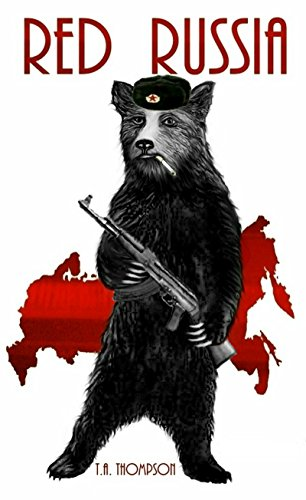
On her Goodreads, Tanya Thompson describes herself as "a mischievous criminal with a penchant for charming my way into trouble and then out of arrest." She writes both fiction and non-fiction. Her book Red Russia is sensual, comedic, and unapologetically transgressive. I use the term vast because the work pulls together classical ideas like philosophy and literature, and then, like alchemy gone mad, it mixes them with popular cultures such as games and social media. In Red Russia, the characters include an American businessman and his fortune-telling fiancee, many Russian gangsters, and a few government agents. The characters are unique with strong voices to define their differences. The plot is fast and funny, and the sheer number of topics this work covers will boggle your mind.
“The birth of a legend is the death of a hero. Every man wishes to die a hero. A hero’s death is glorious!”― Tanya Thompson, Red Russia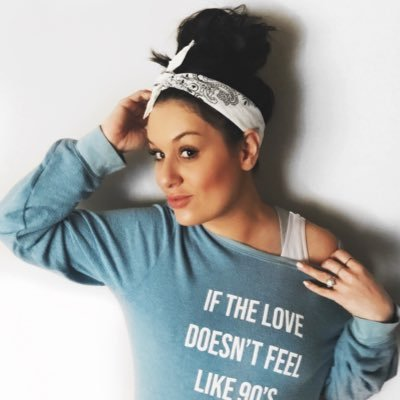 Tarryn Fisher
Tarryn Fisher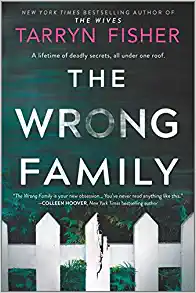
Tarryn Fisher is a South African-born novelist based in Seattle, Washington, United States. On her Twitter, she describes herself as a "Writer. Reader. Liar. New York Times bestselling author. Likes the color of your blood." Her thriller, The Wrong Family is the perfect book for readers when one shocking plot twist is not nearly enough. (source) She writes primarily in the romance, thriller, and new adult genres, and is best known for her New York Times best-selling novels The Wives and The Wrong Family. My favorite book of Fisher is Bad Mommy. The genre is a thriller but you can see Transgressive elements in all of her books.
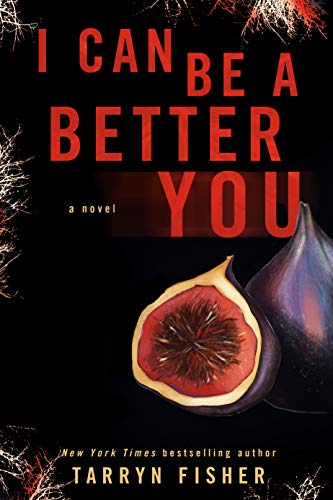
Bad Mommy which is now named I CAN BE A BETTER YOU, is a life ruiner. Yes! That's true. After you read this book you won't be able to move on from this masterpiece questioning yourself are the people in your life genuine, or are they all wearing masks?
This psychological thriller fuck you mentally. Her extraordinary writing captures you into a crazy cocoon and won't let you go until the end. It's a great example of a novel that’ll mess with your emotions. However, I believe the best example of Transgressive Fiction written by her is The Opportunist.
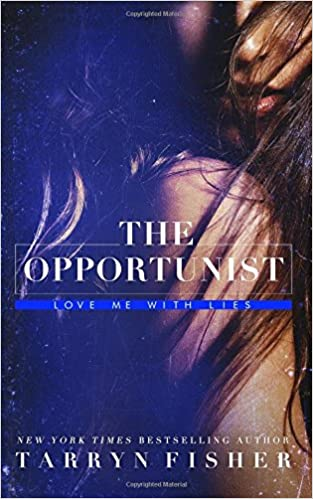
The Opportunist is about a woman named Olivia Kaspen who never imagined she’d get a second chance with her first love, the one she foolishly let slip away. It's a romance novel about how Olivia must fight for what was once was hers, and in the process discover that sometimes love falls short of redemption. This is not a normal fluffy cozy romance novel. It's a kind of romance that makes you feel like you've been sucker-punched in the solar plexus half a dozen times before throwing you out in the middle of a busy sidewalk. It's a completely messed-up romance novel that makes you hate the main character like a good Transgressive Romance novel. You have to suffer through all of her twisted thinking and actions only to find out she ruined her chances with the man she truly loved.
“That's why writers write—to say things loudly with ink. To give feet to thoughts; to make quiet, still feelings loudly heard.”― Tarryn Fisher, Mud Vein Natalie Young
Natalie Young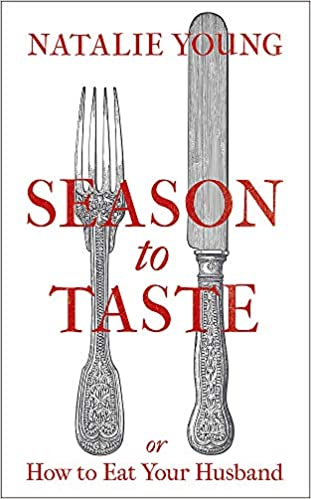
Natalie Young was born in London in 1976. She published her first novel, We All Ran Into the Sunlight, in 2011. Season to Taste or How to Eat Your Husband was published to great critical acclaim and commercial success in the UK in 2014 and has sold into a further seven foreign territories. This book is described by The Times as "A stomach-turning and terrific novel...a brilliant and literal dissection of a marriage." This book is a daring novel and as you are here, you should know I love a good transgressive novel that is raw and bravely written and this book is the type of book I was going to enjoy. The premise is simple; after thirty years of marriage, Lizzie Prain has had enough. A single blow with the shovel caves his head in and now she is free but she also has to dispose of his body. Her method appealed to her practical side; she was going to eat him. Isn't it fantastic? Natalie is now writing the screenplay for Season to Taste while also working on her third novel as part of a Creative Writing Ph.D. at Goldsmiths, University of London.
Always let the meat rest under foil for at least ten minutes before carving. - Natalie Young,Season to Taste or How to Eat Your Husband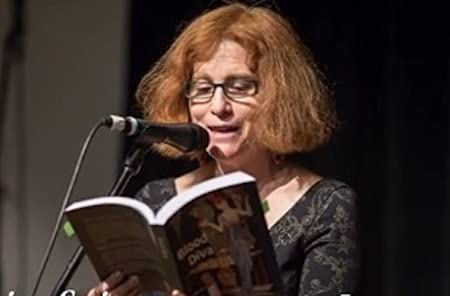 Marion Stein
Marion Stein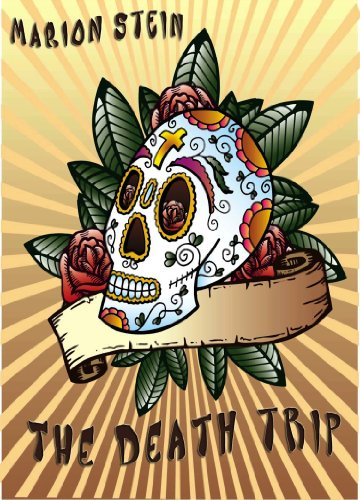
Marion Stein is a New York-based fiction writer and blogger. She also writes snarky television recaps for Happy Nice Time People. Why I put her in my list of Women Transgressive Writer is because of her book, The Death Trip. In this book, The Simulated Life Elapsed Process aka The Death Trip is advertised as a pharmaceutical alternative to end-of-life pain and suffering that result in a dream state that makes the user's last minutes feel like years spent living the perfect existence. It is a quick-read novella, around 20k words. This is very similar to euthanasia or assisted suicide, yet the author mentioned it isn't the same concept. The idea of this story is intriguing in that focuses on pumping terminally ill patients full of drugs to the point they are in their own versions of heaven or nirvana. This is not the only reason I put it in my Transgressive Bookshelf (kindle of course) but also being brave to even talking about sensitive topics (for most, not me) terminating disabled children, and this in many people's perspective is just wrong which makes it a perfect candidate for this genre.
Alright. I'm done with this post. See you in the next post which is the last BTW. I know you'll miss it so much. At least I will.
September 29, 2021
Writer vs. Writer Interview: Tobin Elliott
Today's guest, Tobin Elliott is one of the most fascinating writers I had a chance to interview. If you love horror and books similar to Stephen King's Carrie today's interview maybe just for you.
I'd like to start this post with a story that Tobin told me about himself which I like to quote directly here: "lived most of my life in a fairly large city, but I spent some transformative years in a very small northern town (this becomes more important in later questions, I promise!). I’ve been married thirty years to a lovely, funny woman, and I have a daughter who’s 28 and a son who’s 25.
A couple of years ago, I was let go from my corporate job where I was a Communications Specialist. I decided it was the right time to sort of retire, so I did. Now, I work part-time at two different places. When I was young, it was always my dream to work in one of three places: a book store, a record store, or a comic book store. Well, I work at a book store that also sells albums, and my other job is at a comic store. Kind of livin’ the dream with the part-time jobs. And, with the free time I now have (between retirement and lockdowns), I’ve really jumped back into the writing game.
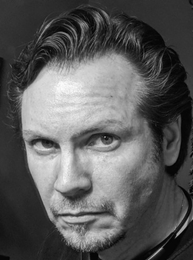
Now that you know Tobin a bit more now (if you haven't before this post), let's ask him some questions.
Tobin. I'd like to ask you a difficult question first. Can you give me an example of when first you thought outside of the box when it comes to writing?
That’s not an easy question! This may not be horribly “out of the box” for most, but I will say it was transformative for me and taught me a huge lesson. As I was writing my first novel (about a massive demon being summoned inside a high school), I was doing really well with the writing. I was a good 150 pages in when I hit a snag. My characters were in the high school cafeteria. It was on fire. There’s one exit. And I had that big demon show up and block the one and only exit.
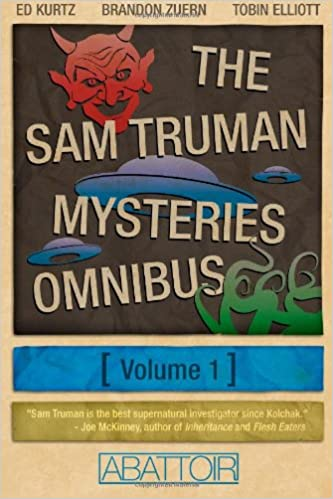
I had literally written myself into a corner. And I had no idea how to get them out. I stopped writing for three weeks because I had no solution. Finally, I decided, to heck with it. I know they escape. They have to. I’ll just jump ahead and write from where they escaped to, and carry on. I’ll write the in-between bit, the escape when it finally comes to me.
Turns out, I got exactly three sentences into where they’d ended up, and I had the solution, fully formed, pop into my head. And yet, I’d had to this time to kickstart the process again. What I learned from that was to trust the process, trust my mind to come up with the solution without necessarily telling me until the time was right. For me, that’s out of the box.
What is your genre and why do you like to write in this field? I see a lot of similarities between your genre and transgressive fiction. Do you think you may categorize your books under this genre?
My genre is horror. I love it because, while I’d started out reading almost anything, but mostly science fiction, it wasn’t until I read Stephen King’s Carrie that I had my mind truly blown and began to entertain the thought that perhaps I could do this type of writing as well.
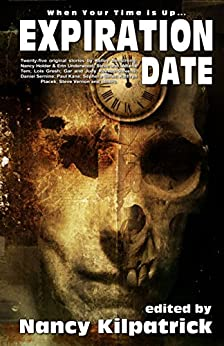
Also, there’s a deeper, more visceral element to writing horror. I make no secret of having lived through some very rough stuff. My father was an abusive, violent alcoholic. My stepfather was mentally abusive. Later in life, my mother took up the challenge of being abusive to me. My story is far from unique. But I find, with horror, I can lift the scabs a bit and poke around in the wounds. I can call up the demons, but I can also bend them to my will. Horror is my way of redefining the evil I’ve seen in the world.
So, to be very clear, I’m not the one that enjoys a lot of gore in my horror. I like the horror that comes from a reader’s mind roiling in the dread of the horrible thing that may happen (and often do). My horror comes as much from supernatural creatures such as vampires, werewolves, and demons as it does from that person that lives in the same house as you that you thought you knew.
Most of us writers who categorize our work under transgressive write for the same very reason and what the result is, can be, a piece of what was missing in the past, what is painful in the present, and what may scare us about the future.
I’m not wholly sure I’d consider my work transgressive. I believe there are absolutely elements there because I do have my outside-of-the-norms characters and often, they have a burn-it-all-to-the-ground perspective to solving their problems. Occasionally it works, more often, it creates a greater problem to be solved. I read somewhere that, in writing fiction, the writer should chase his characters up a tree, then throw rocks at them.
I tend to drive my characters out into the desert for forty days and forty nights with no water, no food, no shelter. And, just when they’re going to collapse, that’s when I set their world alight in flame and pestilence. I try not to do anything halfway. Is that transgressive if they can somehow find their way out of that? I’ll let the readers decide. But is it what we as a society face on a daily basis? Sadly, I think, for some, it’s so.
That can be Transgressive. Well, Tobin, what is your current book about? What did you edit out of it?
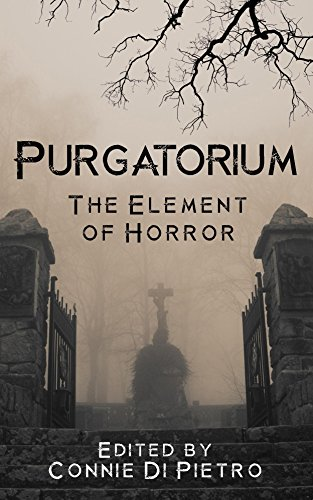
My current book is the culmination of the five novels that came prior to it. I didn’t start out to write a six-book series, but here we are.
These novels are mostly set in or around the town of New Hope, which is a thinly-veiled version of that small northern town I lived in back when I was an impressionable teenager. The next town over from ours had the dubious reputation as “the Vampire Capital of Canada.” It was enough to get a long-gestating idea about eventually writing some nebulous story set in the area. Which I eventually did.
The current novel is, at its heart, going through the fires of Hell to be forged into the person you were always meant to be. But on the surface, it’s the story of Monica in 2012, missing the father she never met. He died in a horrifying supernatural event in 1984, a month before she was born.
But, she finds a card with the phone number of the place where her father worked. In a fit of misery and loneliness, she calls the number and gets her father. And he says, “Oh thank god. I didn’t think you were going to call again.”
So starts the mystery, and the resolution that brings back characters from all the previous five novels in what I jokingly refer to as my own Avengers: Endgame novel. Only there are no superheroes, and there’s a lot of supernatural creatures working both sides of the aisle.
Wow. Spoilers alert! How much of it you're editing?
Only one thing. Monica was far too settled and happy at the start. I had to have her a little more beaten down by life.
What was your hardest scene to write and in which book?
The hardest scene was me beating Monica down. Without going too much into details, there’s a plot point that occurs, and it basically leaves Monica with PTSD and panic attacks, both of which she tries to drown in self-medicating alcoholic blackouts. I wanted to tie it back to something from earlier in her life, just to give it more depth, more verisimilitude.
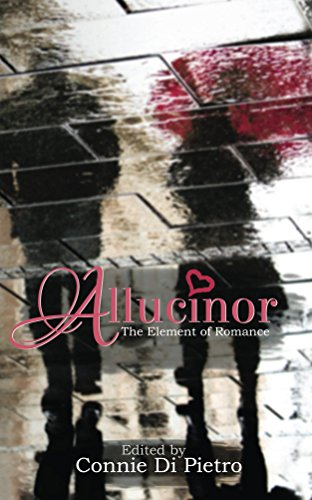
I came up with an idea. I flat-out refused to do the daddy abused me trope, because it’s overused. Instead, I came up with an idea that I thought would be gut-wrenching, but illustrative of her plight.
Unfortunately, I’ve also learned that my writer’s brain can be a fickle bastard at times. Much like it provided the solution for my characters as I noted in question 3 above, I’ve also found that, despite knowing how a scene will go, at times my fingers are hijacked by that writer’s brain and they type out a wholly different scene to what I’d planned. And, while it can be irritating, I’ve also learned to trust it, because it’s always the better route. Rockier and more scenic.
Sounds like a predicament!
Man, it was rough. I literally typed out the last third of the scene with my hands shaking, and tears streaming down my face. It was very, very real, and very visceral. I hadn’t planned on it, I didn’t want to write it. Even later, when talking to my wife about the scene, once again, I ended up sobbing as I relayed it to her.
That’s never ever happened to me before. It’s an awful, horrible scene that, once again, works because it comes from reality. There’s a monster in the scene, but he’s completely human. Not a supernatural entity to be found in the scene. And it’s all the more horrifying because of it.
I consider it probably one of the best pieces of writing I’ve ever done, and likely the closest I’ll ever come to writing like one of my personal writing heroes, Jack Ketchum (pen name for Dallas Mayr). If you haven’t read Jack, you should. You’ll never be the same afterward.
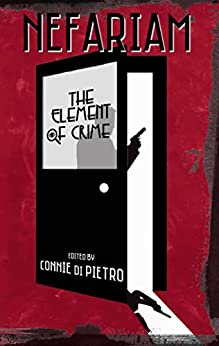
What kind of research do you do, and how long do you spend researching before beginning a book?
I despise researching, so I do as little as humanly possible. Usually, I’ll research on the fly, as I’m writing, because I know I won’t get pulled down a bunch of rabbit holes, simply because I don’t enjoy the act of research. I get in, find what I need, check it for accuracy with a couple of other sources, then go. The only time I researched ahead of time was when I wrote the third book in the six-book series. It was based on an actual event that occurred back in 1911, so I did some pre-reading before I started writing.
How many unpublished and half-finished books do you have?
All of them! I had a good run about 7-10 years ago, where I got three novellas published, and several short stories. Now, none of them are in print anymore. But, for the record, the six-book series is four novels and two novellas, all written and edited and ready to go.
Half-finished books? I’ve started two, but neither is likely longer than 10-20 pages in, and they weren’t ever going to work. I also have about five stories or so, varying in length from 3000-12000 words, and I have two more that I’m currently working on. I tend to be a one-project-at-a-time writer. I also have two other novel ideas percolating in notebooks and my writer’s brain.
That's the life of a born writer! Do you hide any secrets in your books that only a few people will find?
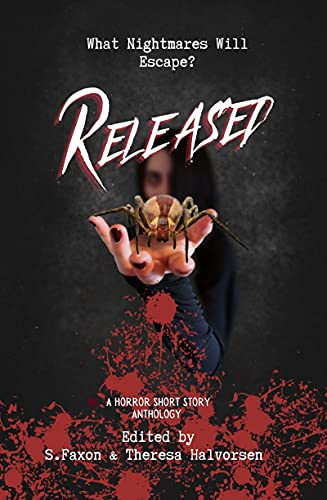
I do! I love leaving little easter eggs for astute readers to find. Neat little allusions that my world is attached to the world of other, favorite novels I’ve read. A subtle character mentions from one story to another, so that if you get to read my full body of work, you’ll see the gossamer strands that connect them all.
What do you owe the real people upon whom you base your characters?
I owe each of them a debt of gratitude for being either the entertaining, hilarious, wonderful people they are that gives me the basic building blocks to work with to create my own characters.
Or…
I owe them nothing, because they were terrible, awful people that deserve nothing but scorn. They too offer basic building blocks for me to create characters that both the reader and I will loathe.
I love that! I do agree 100%. That's a writer's confession right there!
I very often start with someone I know or an amalgam of two or three people, but inevitably, within a few pages of dialogue, the real character begins to assert his or herself, and then, going forward, while they’ll share some traits with their real-life counterparts, they truly come into their own as well.
Thank you so much Tobin for your time. It was inspiring and I hope we can collaborate in the near future.
That's it for today. If you would like to get to know Tobin more you can contact him via these links:
September 24, 2021
Female Transgressive Writers of all time(Part 8)

Image Source
Welcome back. How are you doing today? Let's transgress the norms by learning about another 5 brave women who wrote what everyone is scared of. Today we will learn a bit about Beatrice Sparks, Tana French, Dorothy Allison, Asper Blurry, and Jeanette Winterson.

Image Source
Beatrice Sparks(January 15, 1917 – May 25, 2012)
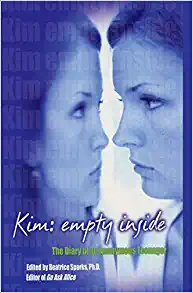
Beatrice Sparks was an American therapist and Mormon youth counselor who was known for her books that were purporting to be the "real diaries" of troubled teenagers. The books deal with issues such as drug abuse, Satanism, teenage pregnancy, or AIDS and that is the reason I categorize her writings under Transgressive Fiction. All of her books were published with the byline 'Anonymous'. Almost Lost and Kim: Empty Inside are the only books for which Sparks does not claim the copyright as the author of the entire work.
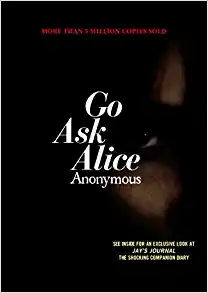
Go Ask Alice is a 1971 book about a teenage girl who develops a drug addiction at age 15 and runs away from home on a journey of self-destructive escapism. There were a lot of questions about the book's authenticity and true authorship that arise in the late 1970s but are now generally viewed as a manuscript-styled fictional work written by Sparks, Nevertheless, its popularity has endured, and as of 2014, it had remained continuously in print since its publication over four decades earlier. (source)
This book is her first work. In interviews conducted over the next few years, Sparks identified herself as the book's editor and related that Alice consisted partly of the actual diary of a troubled teen, and partly of fictional events based on Sparks's experiences working with other teens. (source)Go Ask Alice received positive initial reviews and was also recommended by Library Journal, Publishers Weekly, and The Christian Science Monitor, and ranked number 1 on the American Library Association's 1971 list of Best Books for Young Adults. (source) However, starting in the 1990s, the book began to draw criticism for its heavy-handedness, melodramatic style, and inauthenticity, in view of the growing consciousness that it was fiction rather than a real teenager's diary. (source) At its time, this book may be transgressive fiction but today it has been criticized for equating homosexuality with "degradation", illness, sin, and guilt. (source)
“I'm not really sure which parts of myself are real and which parts are things I've gotten from books.”― Beatrice Sparks, Go Ask Alice Tana French
Tana French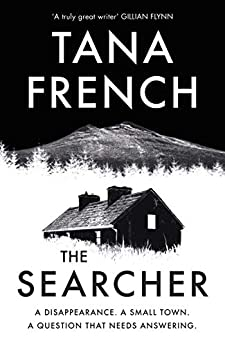
Tana French is born in 1973 is an American-Irish writer and theatrical actress. Her debut novel In the Woods was published in 2007, a psychological mystery, won the Edgar,(source) Anthony, Macavity, and Barry awards for a best first novel. The New York Times writes about The Searcher as "a spellbinding, propulsive new novel from the bestselling mystery writer who is in a class by herself." For me, this book is a form of transgressive fiction as it needs guts to read.
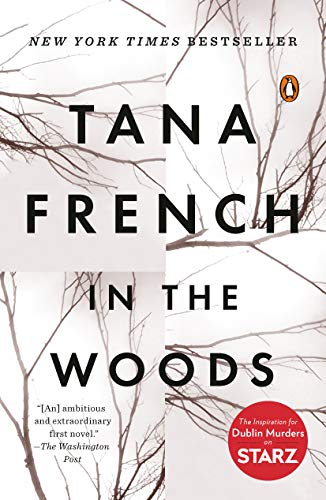
Her first novel, In the Woods, is listed in top transgressive novels by Goodreads and it's one of my favorite crime/horror books. The plot revolves around a rape-murder which is not easy to read for people who are sensitive about this matter. Her psychological slash literary mystery, where the emphasis isn't on the detective or the narrator being in physical danger, but psychological danger.
“What I am telling you, before you begin my story, is this -- two things: I crave truth. And I lie. ”― Tana French, In the Woods
Image Source
Dorothy AllisonDorothy Allison is an American writer whose writing focuses on class struggle, sexual abuse, child abuse, feminism, and lesbianism. (source) French literary scholar Mélanie Grué describes Allison's work as a celebration of "the vilified transgressive lesbian body." (source)Grué also notes Allison's ability to make lesbian "desire and pleasure public" in her writing is in contrast to the second-wave feminist views on "correct expressions" of sexuality. Allison is a survivor of physical abuse and incest. She is a lesbian and feminist activist, a mom, and a teacher.
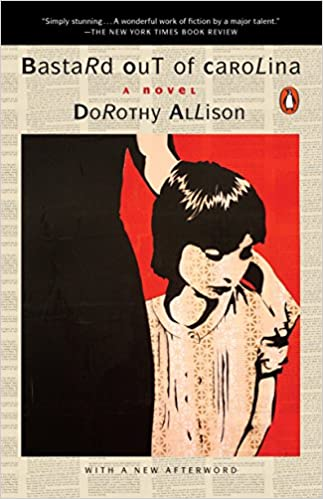
Allison's first novel, the semi-autobiographical Bastard Out of Carolina, was one of five finalists for the 1992 National Book Award. Her influences include Flannery O’Connor, James Baldwin, Jewelle Gomez, Toni Morrison, Bertha Harris, and Audre Lorde. (source) Allison says The Bluest Eye by Morrison helped her to write about incest. But she mentions “what may be the central fact of my life is that I was born in 1949 in Greenville, South Carolina, the bastard daughter of a white woman from a desperately poor family …” she wrote in an essay included in her 1994 book Skin. She began writing and still writes to make sense of her upbringing, forgive her mother for not protecting her, and give other writers permission to tell their stories. (source)After reading Bastard Out of Carolina I started writing an anthology of creative essays about my life and the abuse I've been through.
“Write to your fear.”― Dorothy Allison
Image Source
Asper BlurryAsper Blurry is a writer with a voice that is genuine, blunt, and raw, sometimes poetic and mysterious. I categorize her work under transgressive fiction because she freely writes about controversial issues such as addictions, depression, and intolerance.
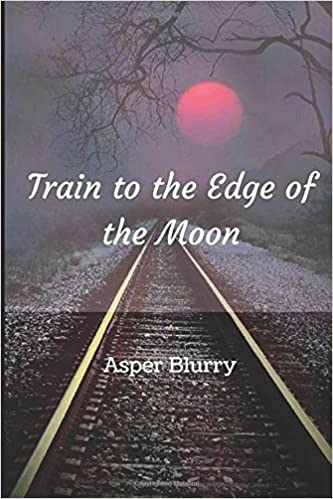
After reading Train to the Edge of the Moon I fell in love with her style of writing. This book is about the youngster's reality – struggles with career, romances, feeling lost, misunderstood, and rejected by society. It’s funny, it makes you laugh but yet it's sad and dark and makes you want to cry a little. In this book, Blurry doesn't affraid to bring up controversial issues such as addictions, depression, and abuse which all are categorized under the transgressive genre. She writes about "those who have been beaten down, and nearly robbed of everything that makes them who they are, those who refuse to adapt and be another brick in the wall in the modern mayhem will find here hope and strength to fight for their happiness and peace of soul." (source)
“Maybe people like us can’t be happy. Maybe we’re too damaged and the only thing we can do is to learn how to hate ourselves a little less.”― Asper Blurry, Train to the Edge of the Moon
Image source
Jeanette Winterson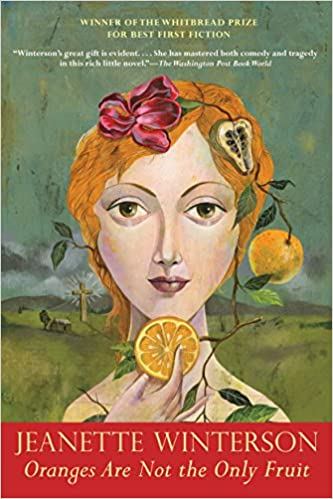
Jeanette Winterson is an English writer who became famous with her first book, Oranges Are Not the Only Fruit, a semi-autobiographical novel about a sensitive teenage girl rebelling against conventional values. This book is so well written that it brings back memories of the time you were that teen. Most of her novels are focusing on exploring gender polarities and sexual identity, and later ones on the relations between humans and technology. (source) which is yet another reason that I adore her as it's the genre I am fascinated about in my writings as well.
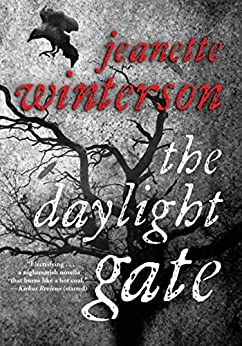
Her 2012 novella, The Daylight Gate, based on the 1612 Pendle Witch Trials, was published on the 400th anniversary of the trials. The story's main character, Alice Nutter, is based on the real-life woman of the same name. In an interview with the guardian, she mentions that "I thought of suicide. I rang up friends saying, 'I think I need to kill myself.' I saw myself between two dark spaces. One dark space was suicide. The other was pretending to myself there was nothing wrong and carry on my life without confronting that darkness. I had to be in that space where suicide was really an option for overcoming unbearable mental pain." (source)A feeling I've experienced myself.
The Guardian's Sarah Hall describes the work as "irrefutable; this is old-fashioned storytelling, with a sermonic tone that commands and terrifies. It's also like courtroom reportage, sworn witness testimony. The sentences are short, truthful – and dreadful ... Absolutism is Winterson's forte, and it's the perfect mode to verify supernatural events when they occur. You're not asked to believe in magic. Magic exists. A severed head talks. A man is transmogrified into a hare. The story is stretched as tight as a rack, so the reader's disbelief is ruptured rather than suspended. And if doubt remains, the text's sensuality persuades."(source)
“Book collecting is an obsession, an occupation, a disease, an addiction, a fascination, an absurdity, a fate. It is not a hobby. Those who do it must do it.”― Jeanette WintersonStay tuned with another blog post about Women Transgressive Writer. See you soon.
September 23, 2021
Writer vs. Writer Interview: Riya Anne Polcastro
Sexy, quite strange as she says, finding beauty in tragedy seems, Riya Anne Polcastro to be the right person for this interview series. In this post, we will know more about Riya, an author of numerous books including Jane, Dentata, and the forthcoming Spanglish young adult novel Popcorn 4 Dinner. Let's dig in!

Well, Riya, could you tell us about yourself? Who is real Riya?
Um well… I am quite strange. I enjoy taking pictures of dead things and graves—finding beauty in tragedy or something. My life goal is to be a vagabond and once my kids are grown I will probably bounce around to different countries for the rest of my time on this planet. First stop—Vanuatu.
I would really like to break into screenwriting and have written a hilarious dramedy pilot that got a teeny tiny bit of attention from a Hollywood producer. Does anyone want to pretend to be my agent and sell it for me? No? Darn.
I feel you. Well, I see your perspective toward the writing of a more transgressive view. So may I know when did you decide to become a writer in such a genre as I see this is normally a genre mainly male dominant.
I wouldn’t say that I really set out to write in the Transgressive genre, it just sort of happened that way. On the surface, transgressive literature is definitely a male-dominated genre, but there is so much to unpack there—both personally and in general. So for me, I would say that I tend to have traits that are considered by society to be more masculine at this point in human history, so it makes sense for me to align with a more masculine genre. There is also a limit to how much control a writer has over their stories because oftentimes it is less about creating something of my own and more about vomiting up something that is trapped inside of me.
But at the same time, I think it is important to challenge what is really considered transgressive literature.

And while I do feel that my writing aligns more with the likes of Chuck Palahniuk and Kurt Vonnegut and the like, there is a whole world of women writers out there, particularly Black women, who have given us amazing transgressive stories that are not necessarily recognized as such. I am thinking specifically of novels like Toni Morrison’s Paradise, Beloved, Sula, and so on. Jesmyn Ward’s Bois Sauvage trilogy also comes to mind. These authors don’t fit the traditional mold for transgressive and I could never pretend to follow in their footsteps. They write the type of stories that, in addition to having very transgressive characters, also rip your heart out in a way that I have just never experienced from the typical sort of white male transgressive writer. So I would argue really that like most things in life, it is not that men dominate the genre, but rather that they just are given the most recognition.
What about Transgressive Genre attracts you?
I have always been attracted to stories that recognize that good people do bad things and bad people also do good things and that one’s choices are representative of what is available to them. Fluffy characters with minor flaws are boring and incapable of exposing society’s gray areas.
What do you think makes a good story?
The type of writing that draws you in and lets you experience the story as opposed to reading it. If I can’t forget where and who I am or that I am reading, I probably won’t finish it.
When did you first realize you wanted to be a writer? And as a child, what did you want to do when you grew up?
I always wanted to be a writer, even as young as kindergarten. I wrote my first full-length novel when I was eleven or twelve. It was rather silly looking back, but even then there were transgressive elements.
We've got something in common. How long does it take you to write a book?
That really depends. Anywhere from a month to a year.
Do you have any writing routines? What is your work schedule like when you're writing?
Writing basically takes up all of my free time. It is a bit of compulsion at this point—definitely unhealthy.
Where do you get your information or ideas for your books?
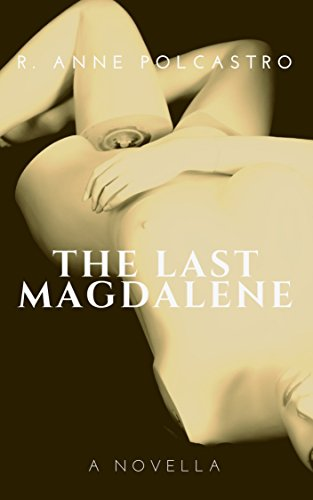
My primary motivation is a lot of childhood trauma from being raised in evangelical Christianity. Jane. deals with this, also Dentata. And my next book, Popcorn 4 Dinner; Traff’kd @ Midnight (Palomitas para Cena; Traficado en la Madrugada) has its roots in the so-called missionary work done by the church as it attempts to take over control of the cultural hegemony in the global south. Both Jane. and Dentata was also heavily influenced by the rape trope that has become so common in both Hollywood and transgressive fiction. So these novels were pushbacks to this lazy writing and they are also revenge stories for all the times I have wanted to put a hole through a screen or burn a book because some (not always but usually) CIS white male writer is too lazy to come up with any other way to convince readers to hate their antagonist.
Which author inspires you the most and why?
Morrison and Ward inspire me in the way they make you feel the story deep in your bones, though I can never even dream of being on their level. Palahniuk inspires me to not give a fuck about offending people. Bernice McFadden inspires me to find love even in the darkest places. Sandra Cisneros inspires me to embrace my place between cultures and to use Spanish words where English fails. Tolstoy inspires me to find the vein we all share.
What does your family think of your writing?
My family is very supportive. I doubt they’re surprised by the themes.
What was one of the most surprising things you learned in creating your books?
Do I really want to put my naïveté on blast like that? Here goes I guess. My first pitch for Jane. was with an agent who specialized in women’s fiction and I thought it was just such a great fit because I was writing about strong female characters and the themes are really about how society destroys women, blah blah blah. Well, it turns out women’s fiction is fluffy crap. The agent’s face as she listened to my pitch (this was at a conference), and then explained to me what women’s fiction actually is, was priceless. I’m pretty sure she was actually afraid of me. Lesson learned.
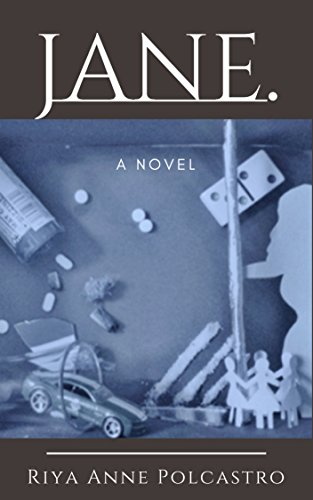
Wow. Interesting. How many books have you written? Which is your favorite?
Ten-ish, depending on how you count. One is a novella and another is a compilation of shorts. Two have not been published yet. I am hoping to have Popcorn 4 Dinner out sometime in 2022. My favorite is Jane. because I have been told by a lot of readers that it has a very strong psychological effect on them—that they actually feel like they may be going crazy while reading it. So much so that readers have reported having to put it down because they couldn’t handle it. Which to me feels like a sort of accomplishment, like I am flirting with the power that authors like Morrison have even if I will never actually attain it.
Do you have any suggestions to help others to become better writers? If so, what are they?
Read—everything. Seek out different voices. Don’t rely on the classics and don’t beat yourself up if you don’t like them. There can be a lot more to learn from an author who has lived real-life versus some old dead dude that lived on an estate (though I do love me some Tolstoy). Don’t be lazy with your storylines and characters. Don’t rely on tired tropes to make your bad guy, actually develop their character and make people dislike them for who they are not just what they do.
Last question. What creature defines you best? Get creative.
That’s a really hard question. I would like to say a crow, but they are probably quite a bit smarter than me. Maybe a cat? I am definitely a dog person, but light enough on my feet that people jump out of their skin when they don’t hear me enter a room. Which can be a lot of fun! Or maybe shapeshifter since I have been confused for many different citizenships while traveling (Argentinian, Belizean, Mexican, British, some country called Yolandia that I am pretty sure is made up but that cab driver in Nicaragua was very insistent that I had to be from there, wherever it is). I really don’t have a good answer here, sorry.
That was a perfect answer. Thank you, Riya.
If you're interested to keep in touch with Riya, you can check the following links:
Twitter: @xennialrage
Facebook & instagram: @riyaannepolcastro , @murderlineimages
YouTube: https://www.youtube.com/c/Riyaannepolcastro
Amazon: https://www.amazon.com/Riya-Anne-Polcastro/e/B00LALU9OU
Kindle Vella: https://www.amazon.com/Dive-Bar-Blues-Tales/dp/B09CYDFKWH
Substack: https://popcorn4dinner.substack.com/
Vocal: https://vocal.media/authors/riya-anne-polcastro-2a58xa0ilk
Medium: https://medium.com/@riyaannepolcastro
Barnes & Noble: https://www.barnesandnoble.com/s/Riya%20Anne%20Polcastro
Smashwords: https://www.smashwords.com/profile/view/RAPolcastro
Audible: https://www.audible.com/author/Riya-Anne-Polcastro/B00LALU9OU
September 18, 2021
The Hell! Let's Write Your First Book

If you've clicked on this post, I guess, you're dreaming to write a book or finish the one that you just can't stop thinking about. But you're either scared or procrastinating! If this is you, you may still have the dream of writing your own book, a book that will get published. In this post, I'd like to share some of my experiences in this regard with you in few simple words.
If you have yet to write a book, there are a number of important steps that you will first want to take. These steps, a few of which are highlighted below, may help to improve your chances of you writing a book that will get published. So, you wanna know more? then, let's go!
You can receive a free eBook including detailed information on each step by subscribing to the mailing list
One of the first things that you will want to do when looking to write a book that will be read is to choose a genre. This involves first deciding who you want to write for. Do you want to write for children, young adults, or adults?
Next, decide what you want to write about. Do you want to educate your readers or give them a captivating story that they just can’t put down? As for the topic or storyline that you choose, be sure to choose something that interests you. A writer who is passionate about what they write is more likely to see success.
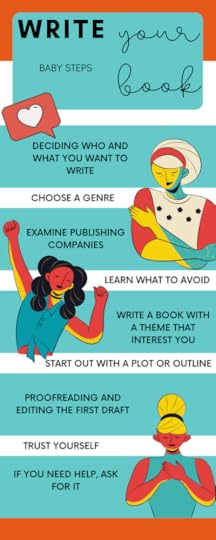
Once you have an idea of what type of book you want to write, as well as an idea on your theme, take the time to examine publishing companies or books in the same genre and with the same theme. This is easy to do by checking Amazon bestsellers or check the publishing company that publishes those specific themes. You can also take a look at online- trends. Most clearly outline what types of books readers are looking for. For example, a publisher that is accepting manuscripts for science fiction novels may give you specific tips and ideas, as well as things to avoid.
Writing a book with a theme that interest you, as well as a theme that is in demand by publishers and readers, is one of the best ways to get your book sold.
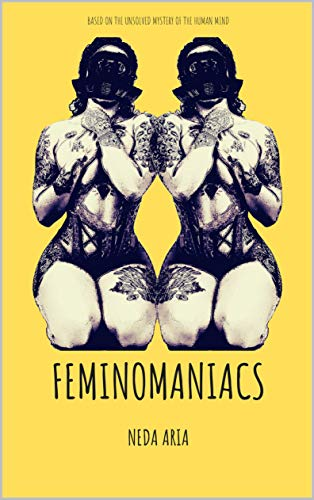
As for writing your book, it is important to start out with a plot. If you are writing a non-fiction book, such as a how-to guide, be sure to create an outline for you to follow. Fiction authors, however, should first outline a plot. Unfortunately, many authors, especially new writers, just start writing. Of course, it is important to get your thoughts on paper or on your computer as I always say, but a clear and solid plan is an important component of writing a book that will get published. I normally create a general plot for the whole story I have in mind. I do this only with the longer fictions like novels as I did for ENARO. For short stories like Feminomaniacs, I just have an idea and an expected ending. This is some kind of plotting for the procrastinators like me.
Once your book has been written, it is important that you do the proper amount of proofreading and editing. The proper amount means you have to rewrite your own story several times to the point that it makes you happy. Many professionals vary on the number of times that a book should be proofread, but you should read through yours no less than three times. In addition to doing your own editing, you may benefit from the professional knowledge and expertise of an editor. Many have reasonable fees.
As previously recommended, it is a wise idea to first see what many publishers are looking for. Also, as previously stated, you can do this by using the internet or printed resource guides. If you highlighted or recorded the information that you read, you may already have a list of publishers to submit your book to and if not, don't forget you always can self-publish in which case, I can help you. Good luck.



